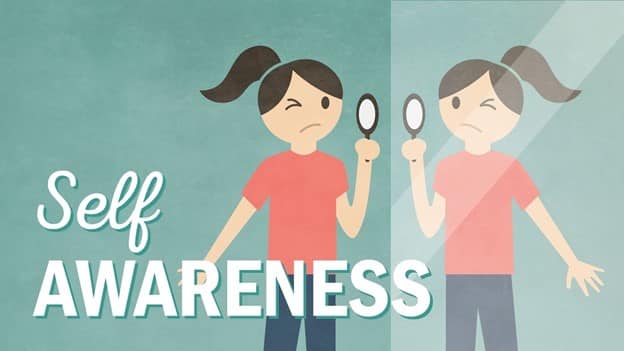|
Getting your Trinity Audio player ready...
|
Self-Awareness:
Over the previous decade or thereabouts, most pioneers have developed acquainted with the idea of mindfulness. They comprehend that they need to request criticism and perceive how others see them. However, with regards to the requirement for learning, our appraisals of ourselves—what we know and don’t have the foggiest idea, abilities we have and don’t have—can in any case be woefully wrong. In one examination led by David Dunni a Cornell University therapist, 94% of school teachers revealed that they were doing “better than expected work.” Clearly, practically half weren’t right—numerous amazingly so—and their self-double dealing most likely lessened any craving for advancement. Just 6% of respondents considered themselves to be having a long way to go about being a powerful educator.
Zeroing in on advantages, not difficulties, is a decent method to expand your goal.
In my work I’ve discovered that individuals who assess themselves most precisely start the interaction inside their own heads: They acknowledge that their point of view is frequently one-sided or defective and afterward make progress toward more prominent objectivity, which leaves them substantially more open to getting and following up on others’ thoughts. Try to focus on how you converse with yourself about yourself and afterward question the legitimacy of that “self-talk.”
Suppose your manager has disclosed to you that your group isn’t sufficient and that you need to improve at evaluating and creating ability. Your underlying response may be something like What? She’s off-base. My group is solid. A large portion of us react protectively to such an analysis. Yet, when you perceive you’re’s opinion, ask yourself, Is that exact? What realities do I need to help it? During the time spent reflection you may find that you’re off-base and your supervisor is correct, or that reality lies some place in the middle—you cover for a portion of your reports by doing things yourself, and one of them is conflicting in gathering cutoff times; nonetheless, two others are stars. Your internal voice is most helpful when it reports current realities of a circumstance in this decent manner. It should fill in as a “reasonable observer” so that you’re available to seeing the regions in which you could improve and how to do as such.
One CEO I know was persuaded that he was an incredible director and pioneer. He had colossal industry information and incredible senses about developing his business, and his board recognized those qualities. However, he listened uniquely to individuals who insisted his perspective on himself and excused contribution about deficiencies; his group didn’t feel connected with or roused. When he at long last began to scrutinize his presumptions (Is everybody in my group engaged and gainful? If not, is there something I could be doing any other way?), he turned out to be considerably more mindful of his formative necessities and open to criticism. He understood that it wasn’t sufficient to have vital experiences; he needed to impart them to his reports and welcome conversation, and afterward set clear needs—upheld by quarterly group and individual objectives, standard progress checks, and investigating meetings.
Curiosity:
Children are tenacious in their desire to learn and dominate. As John Medina writes in Brain Rules, This requirement for clarification is so capably sewed into their experience that a few researchers portray it as a drive, similarly as craving and thirst and sex are drives. Curiosity is the thing that makes us take a stab at something until we can do it, or consider something until we get it. Extraordinary students hold this youth drive, or recover it through another utilization of self-talk. Rather than zeroing in on and strengthening starting lack of engagement in another subject, they figure out how to ask themselves “inquisitive inquiries” about it and follow those inquiries up with activities. Tune Sansone, a brain science scientist, has found, for instance, that individuals can expand their ability to handle essential errands by pondering how they could accomplish the work diversely to make it really intriguing. With everything in mind, they are about to change their story. I keep thinking if I can?
You can utilize a similar system in your working life by seeing the language you use in contemplating things that as of now interest you—How… ? Why… ? I wonder…? — and drawing on it when you need to get inquisitive. At that point make only one move to address an inquiry you’ve posed to yourself: Read an article, question a specialist, discover an instructor, join a gathering—whatever feels most effortless.
I as of late worked with a corporate legal counselor whose firm had extended to her a greater employment opportunity that necessary information on business law—a zone she viewed as the absolute most exhausting part of the lawful calling. Instead of attempting to convince her else, I asked her what she was interested about and for what good reason.
Changing Your Inner Narrative:
Unsupportive Self-talk Supportive Self-talk I don’t have to get familiar with this. What might my future resemble in the event that I did? I’m
I clarified that her “inquisitive language” could be applied to work law. I can’t help thinking about how anybody could think that it’s intriguing? she said tongue in cheek. I revealed to her that was really an OK spot to begin. She started pondering potential answers Maybe a few legal counselors consider it to be an approach to ensure both their workers and their organizations… and afterward proposed a couple of other inquisitive inquiries How may find out about this make me a superior attorney? Before long she was sufficiently captivated to interface with a partner who was knowledgeable about work law. She asked him what he discovered intriguing about it and how he had obtained his insight, and his answers provoked different inquiries. Throughout the next months she realized what she had to know for that part of her new job.

